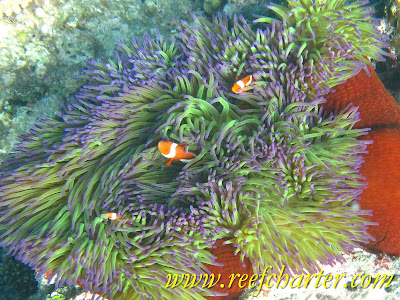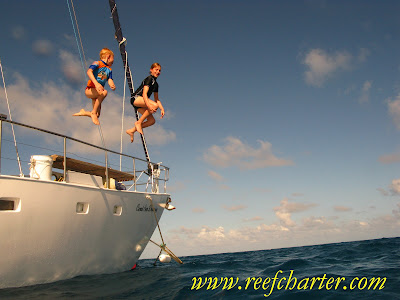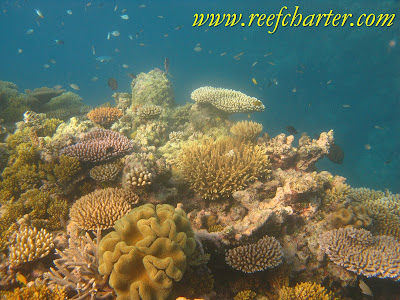A couple of questions we always get from people are where are your guests from and what sort of people come on your trip. I can tell you we have singles, couples, friends, father/son, mother/ daughter, as well as full families from all age groups, and people from all walks of life. So our demographics are very distributed. We do recommend that children younger than 5 do not come on the cruise.
Now where are they from? This map is a general overview of where our guests have come from in the past. So you can see that we get people from everywhere, maybe from your home town. All I can say is our guests are fun people and out to have a fantastic time on the Great Barrier Reef.
Category: Great Barrier Reef
Global Warming and the Great Barrier Reef
News.com has reported the first species to become extinct because of global warming it is the White Possum, native of North Queensland’s Daintree Rainforest. The Daintree Rainforest is adjacent to the Great Barrier Reef so let’s hope this is not an ominous sign of things to come. Greenhouse gases hit record highs in 2007 according to the World Meteorological Association.
These World Heritage Parks both the Great Barrier Reef and the Wet Tropical Rainforest are preserves that have been set aside for future generations of global citizens to enjoy.
So it is important YOU take the time to do some little things that will cut down on emissions and limit your use of fossil fuels. Here are some easy things to do that benefit both you and the planet as a whole.
1. Walk or ride a bicycle to the local shops instead of driving.
2. When choosing a car, buy a car suitable for your everyday use, if you need a bigger car occasionally rent one. It’ll save you money everyday as well as on insurance and repairs.
3. Replace incandescent bulbs with fluorescent or LED bulbs. I know ladies they show complexion issues but vanity is a small price to pay.
4. Don’t run the hot water for a minute to rinse something, most of the hot water is wasted in the pipes and the hot water heater needs to heat that water again.
5. Keep Air-conditioning and Heaters on only for the extremes and set the temperatures at a reasonable level.
6. Reuse and recycle plastics whenever possible especially water bottles. It is incredible to me that people pay more for water in a plastic bottle then they do for soft drinks and other processed products in the same bottle.
More information can be found on the AIMS website also as detailed in our previous post.
The Great Barrier Reef Marine Park Authority (GBRMPA) has published a number of publications providing information on the effect of Global Warming on the Great Barrier Reef. They can be found on their website.
More Great Guest Photos
Climate Change & The Effect on the Great Barrier Reef
One of the most common questions we get asked on our tours is “How is Climate Change Affecting the Great Barrier Reef?” The answer is simple there are quite dire consequences to the reef if global warming is not addressed, below is an extract from the AIMS website.
“Global climate change is one of the greatest threats to the long term future of coral reefs. In combination with other natural and human-induced pressures, warming seas pose a serious risk to the world’s coral reef ecosystems. Summer sea temperature increases of just 2-3°C for a week or two, or 1-2°C for a month or two, are enough to kill sensitive corals. Australia’s tropical marine ecosystems are already reflecting the consequences of global warming with a 0.4°C rise in the tropical ocean temperatures, including the Great Barrier Reef, over the past 100 years. Further increases in sea temperature will lead to increased coral bleaching and more frequent outbreaks of coral disease”
For the full article click here.




